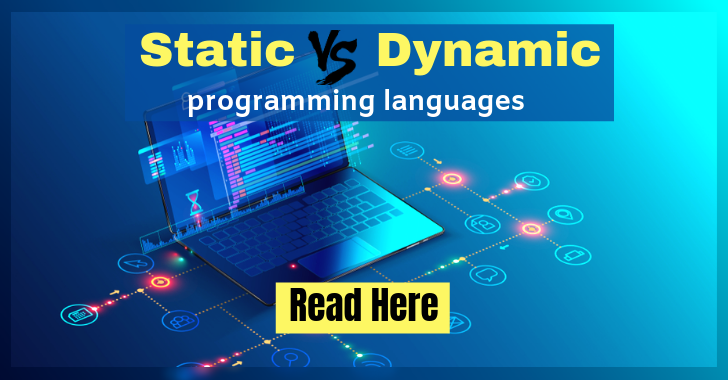
Updated on: May 3, 2019
Static and Dynamic Programming Languages
As we know that there are two types of programming language:
- Dynamically typed programming language
- Statically typed Programming Language

Statically Programming Language:
These type of Programming language are compiler based programming. In this type of programming language we have to be define the type of the data type that we are going to be used in our code. As we all know that statically typed programming language are compiler based so that the type checking occurs during the compilation of code. Once we have define the variable type, we cannot change that variable into another data type.
Ex:
In java:
int a= 23;
String a=”shweta”;
Error will be occur

In C/C++ Programming:
int a= 23;
char a[7]=”Shweta”
Error will be occur


Similarly, there are some statically typed programming language are:
ABC, BCPL, FORTRAN, Pascal, Perl, C/C++, JAVA, C#, Scala, F# …… etc.
Dynamically Programming Language:
These type of Programming language are Interpreter based Programming Language. There is no any specific scenario that we have to specify the type of the variable before using in the code. We can use one variable for multiple task by overriding the value define in the code
Ex: In python Programming

In Java Script Programming


In Interpreter it takes the value and convert directly into the object of that data type to perform the operation and the result is performance goes down poor of the interpreted programming language.
Ex- Python, Java Script, Lisp, small-talk, Perl….. etc.





